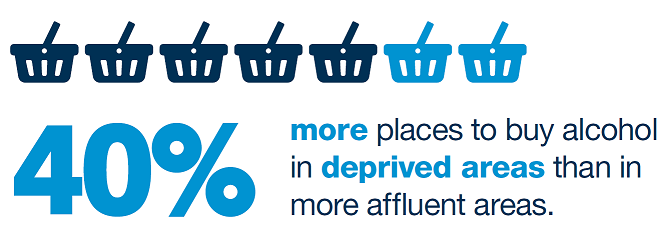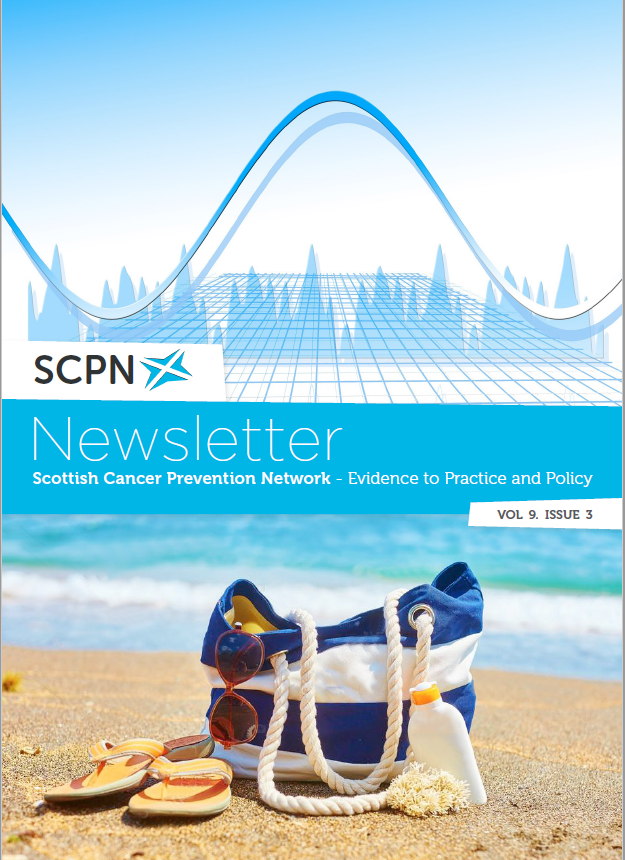
Does the availability of alcohol make a difference?

10 Jul 18 |
By Alison Douglas, Chief Executive, Alcohol Focus Scotland
Recent research from Alcohol Focus Scotland and the Centre for Research on Environment, Society and Health (CRESH) at the Universities of Edinburgh and Glasgow (1) looked at the links between the number of places selling alcohol and the health and social harms in a community.
This research highlights the clear relationship between the availability of alcohol and a range of serious problems suffered by communities across the country. Looking at information for 6976 small neighbourhood areas across Scotland we found that areas with the most places selling alcohol had almost double the rates of alcohol-related deaths and hospitalisations compared to areas with the least outlets.
We were also able to see the stark differences at a local level between the numbers of places to buy alcohol in different communities. There were 40% more alcohol outlets in the most deprived neighbourhoods than in the least deprived neighbourhoods; but 90% more off-sales outlets specifically. This is helping to drive and sustain the severe health inequalities we see in Scotland. What does this mean for Scotland?
The Scottish evidence – in keeping with international evidence – is clear that the easier it is to get hold of alcohol, the more people will drink, and the more harm we will experience. Although there has been some progress in licensing over the years, availability is moving in the wrong direction, with the number of places licensed to sell alcohol continuing to grow.
The local evidence presented can be used to help boards in assessing the overprovision of licensed premises in their areas. Unfortunately, there is no action that a licensing board can take to reduce the number of licensed premises, however, they do have the ability to prevent further increases. It is their duty to act in the public interest and where their communities are suffering, they should be applying the brakes.
But the reality is also that the licensed trade is changing and this is a challenge for a local licensing system. Supermarkets are moving to smaller convenience stores where consumers buy little and often. This has implications for the ease of purchase, particularly when products are sold chilled and ready-to-drink, encouraging impulse purchases.
That’s why there’s a real need for greater national direction on availability and a clearer expectation of how licensing can and should contribute to reducing consumption and harm in Scotland. Alcohol Focus Scotland would like to see a commitment to tackling availability at the heart of the Scottish Government’s next steps on alcohol prevention which are due to be published later this year.
